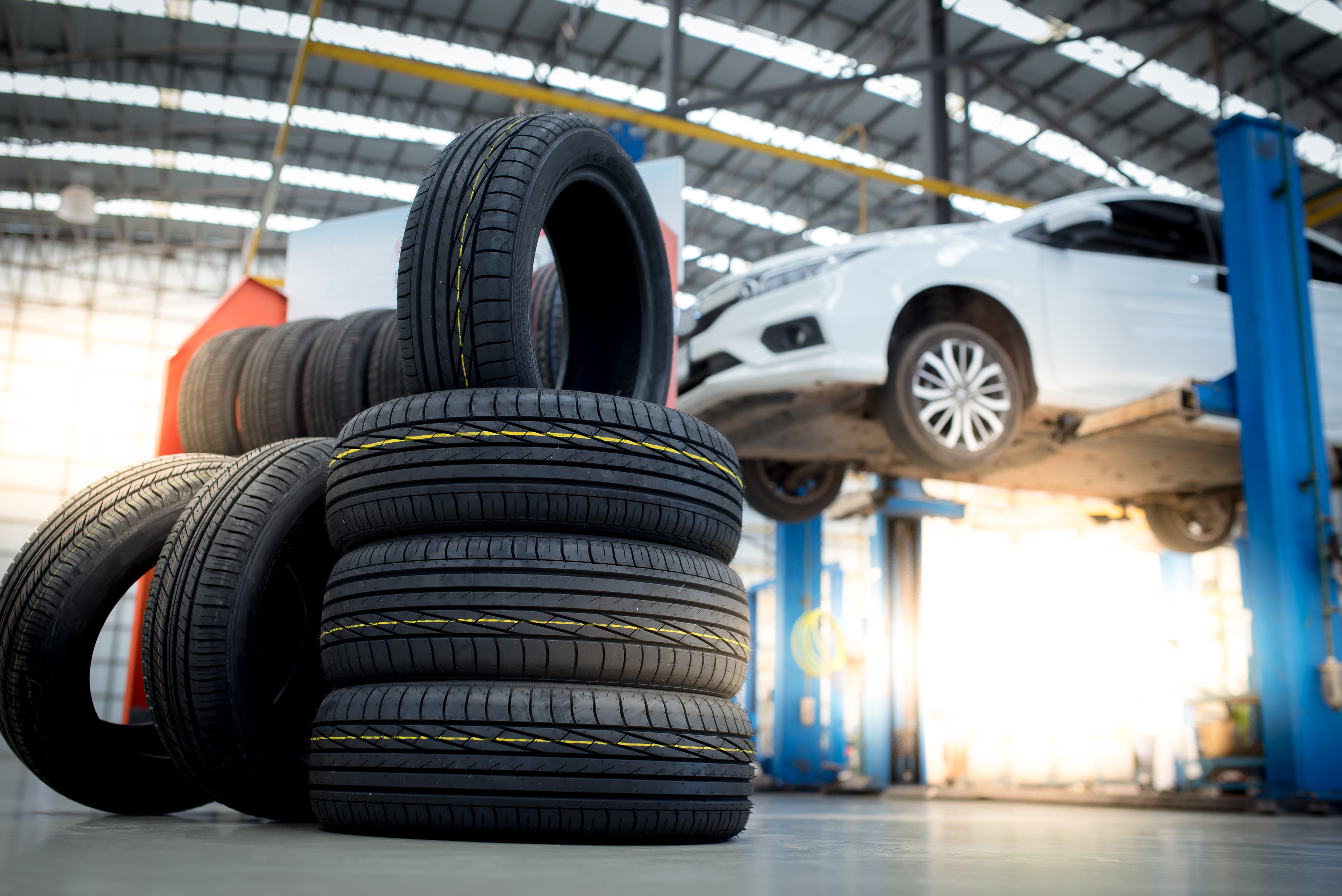
You're in Need of New Tires? Find the Best Tires for Your Vehicle at Kunes Service Center
How can you tell if it's time for new tires?
Is it time for new tires? Knowing when to replace your tires is crucial for your safety and your vehicle's performance. Look for these key signs to determine if it's time for new tires:
- Tire has a puncture, cut, or other damage that can't be repaired correctly
- Low tread depth
- Sidewall damaged deep enough to show cord or fabric
- Uneven wear patterns
- Tire cord or fabric showing through the rubber
- Tire has a bulge or a split
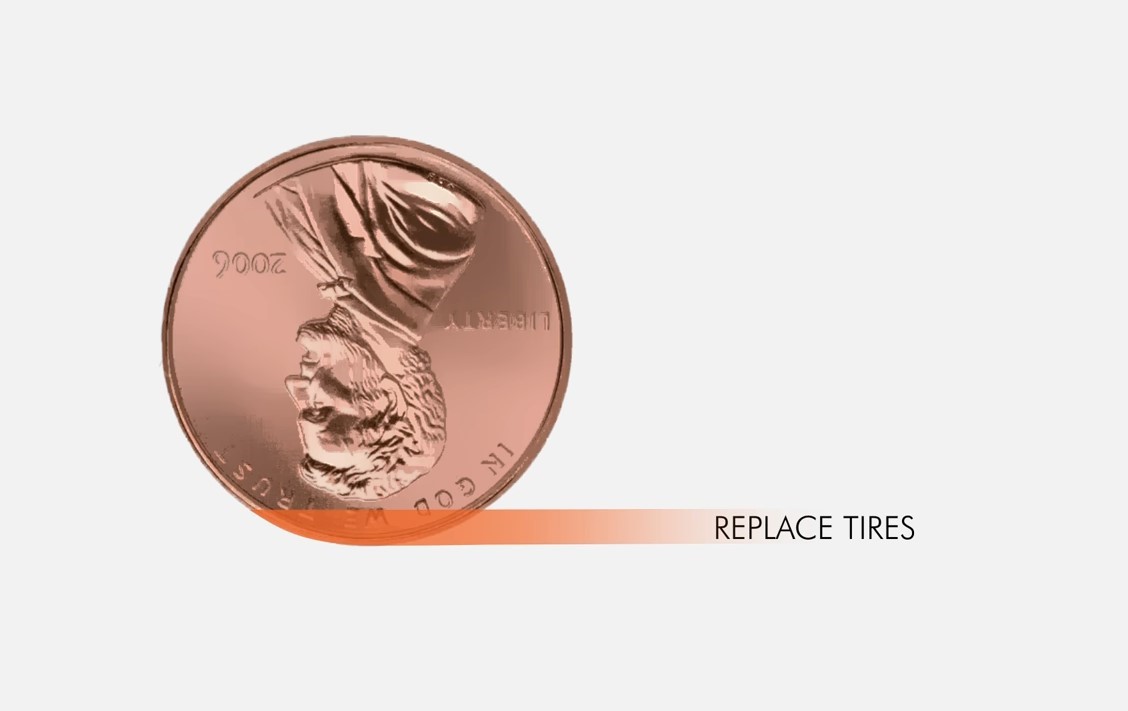
Take the Penny Test
Insert a penny (head first) into your tire tread. If you can see the top of Lincoln's head, you need new tires. If the top of Lincoln's head is hidden, your tread is deeper than 2/32”. On the tail side, if the top of the Lincoln Memorial is hidden, your tread is deeper than 6/32”.
Do I Need An Alignment with New Tires?
Wheel alignment, also referred to as tire alignment, is a service that adjusts your vehicle's suspension to ensure that all wheels are correctly positioned in relation to one another and the road. Essentially, wheel alignment makes certain that each wheel is pointing in the same direction and that every tire maintains optimal contact with the road. This process helps prolong the life of your tires by preventing certain types of uneven tire wear.
We recommend having your wheel alignment inspected when you purchase new tires to ensure even wear from the start. We also advise to have your vehicle aligned regularly to prolong the life of your tires; conveniently, this can be done when your vehicle is in for services like tire rotation. Performing wheel alignment requires precise measurements using specialized equipment and the expertise of a qualified mechanic. That's exactly what you'll find at your local Kunes Service Center.
Do I Need to Get My New Tires Balanced?
Although tire imbalance is often caused by rough roads and other driving hazards, new tires should be checked for balance prior to mounting. If left unchecked, an unbalanced tire can reduce tire life, increase fuel consumption, and ultimately damage shock absorbers, wheel bearings, and wheel assemblies. Additionally, your ride will become bumpier and less safe.
Even new tires can have inherent imbalance from the factory. Beginning with balanced tires and routinely checking balance as part of tire maintenance will help prolong the life of your tires.
Do I need a new TPMS (Tire Pressure Monitoring System) with new tires?
Kunes advises installing a TPMS Service Kit with every tire bought for a TPMS sensor-equipped vehicle and testing the TPMS sensor to ensure accurate tire pressure measurement. Proper tire pressure maintenance extends the life of your tires by preventing premature edge wear and other damage. Your TPMS system alerts you to dangerously low tire pressure, which increases the risk of a blowout. Don't risk missing this warning due to inaccurate pressure readings or a malfunction in your TPMS's alert feature.
When purchasing new tires, it's recommended to have your wheel alignment inspected and your tires balanced to ensure even wear and a longer tire lifespan. Our expert Kunes service advisors are here to help you choose the right tires for your vehicle, provide expert installation, and maintain your tires for optimal performance.
MAINTAINING YOUR TIRES
Tire Rotation
It's a known fact that regular tire rotation extends the life of your tires and improves performance. Tires are rotated to achieve a uniform wear for all tires. Each tire performs different tasks (such as steering in front- versus rear-wheel drive). Tires should be rotated every 7500 miles to prevent irregular tire wear.
It's important to rotate your tires according to the correct tire-rotation pattern. Doing so will prolong th elife of your tires and will reduce the risk of sudden tire failure. Front tires encounter different tasks than the rear tires. A front-wheel-drive car's tires perform different tasks tan those on a rear wheel-drive vehicle.
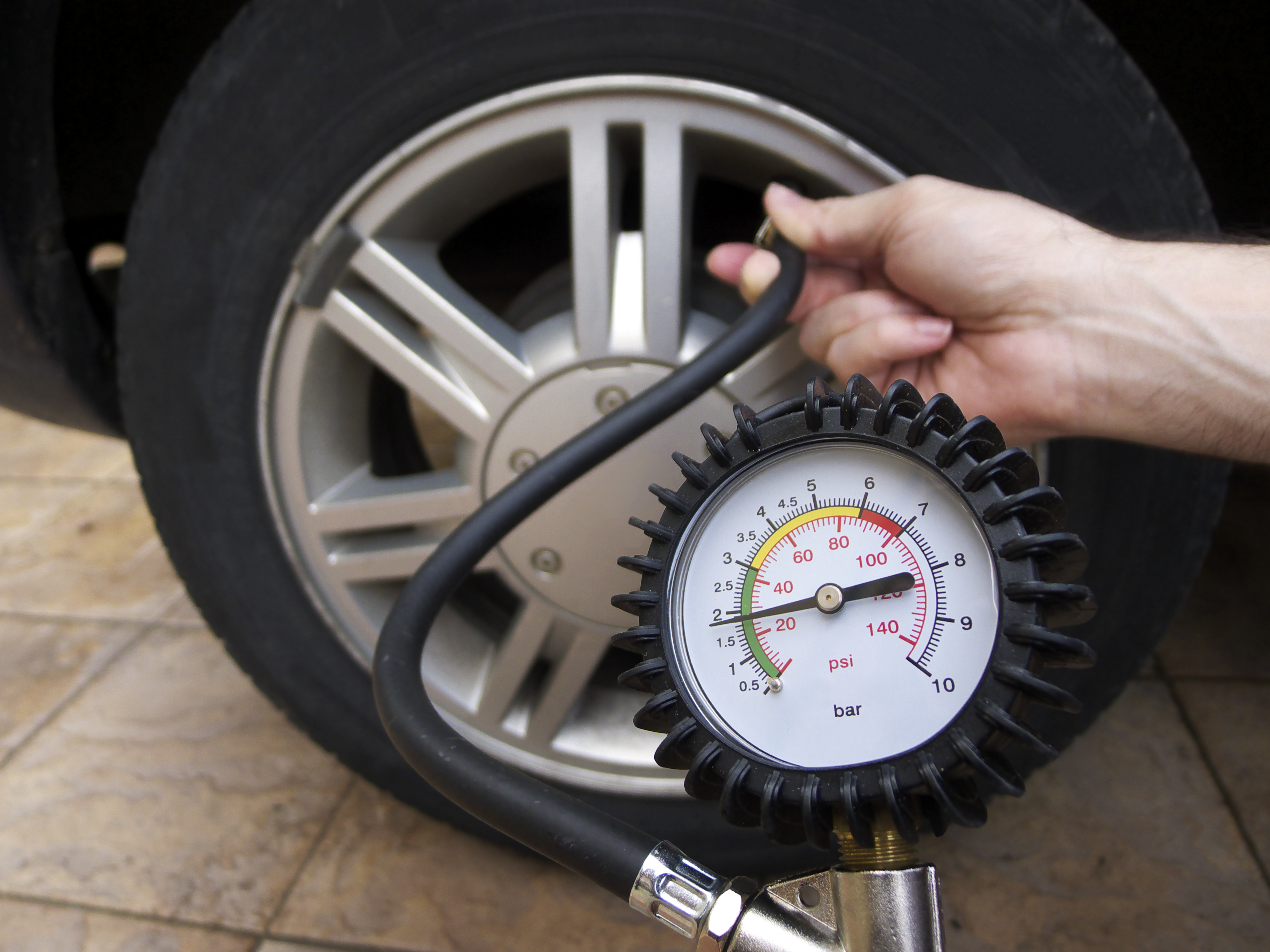
Tire Pressure
Check your tires at least once a month when the tires are cold; meaning the vehicle has not been driven for at least 3 hours, or no more than 1 mile. The Tire Information Label located on the inside of your doorframe has the recommended cold tire pressure for your vehicle.
Inflation pressure maintenance of tires is critical for overall tire and vehicle performance. Maintaining the correct inflation pressure allows the tire to perform as intended, including for comfort, fuel economy, stopping distance, cornering, traction, tread wear, and noise.
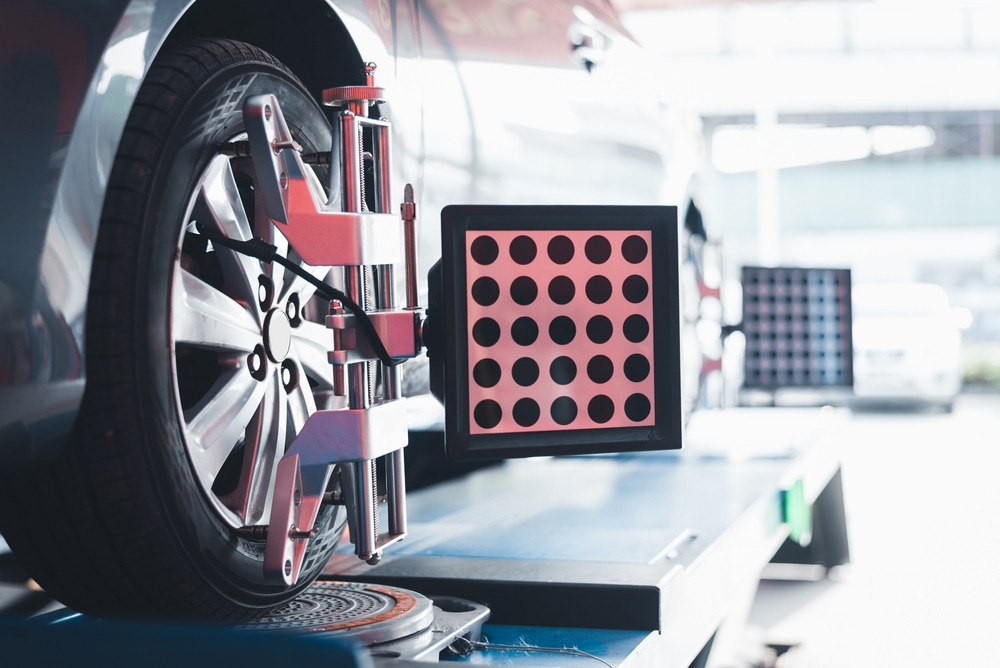
Wheel Alignment
Proper wheel alignment is key to prolonging the life of your tires. If your vehicle is misaligned, it can cause your tires to wear unevenly, and you may experience handling problems, such as pulling or abnormal vibration.
Consider a wheel alignment to check if there is unusual tire wear or the vehicle is significantly pulling to one side or the other. A tire that is out of balance often affects ride quality and can shorten the life of tires, bearings, shocks, and other suspension components. If the vehicle is vibrating when driving on a smooth road, the tires and wheels may need to be rebalanced.
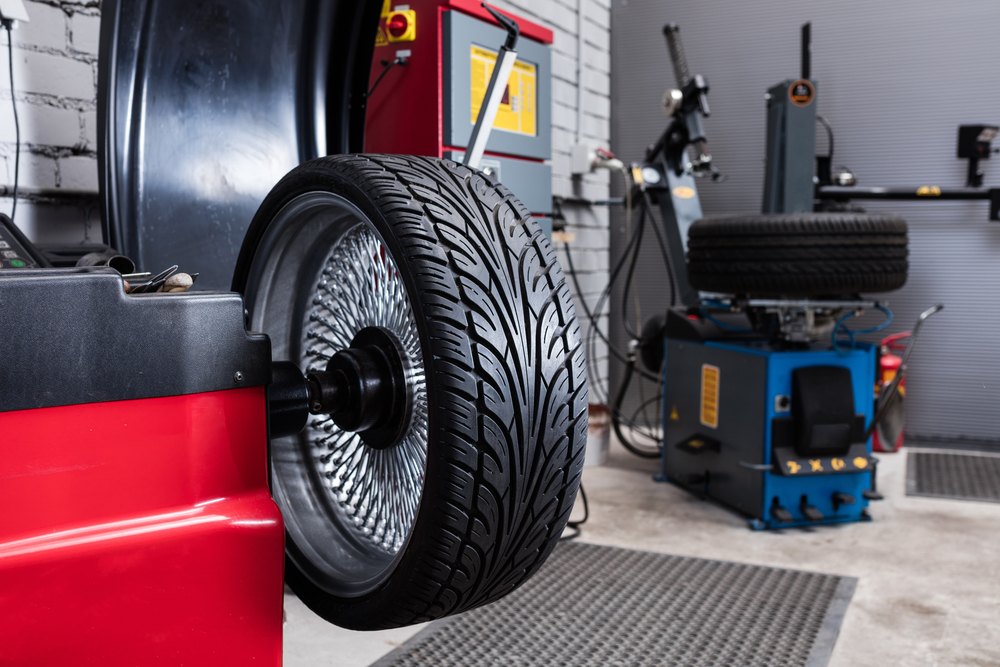
Tire Balancing
Tire balancing is an essential part of vehicle maintenance that ensures the even distribution of weight across your tires, promoting a smoother, safer driving experience. By addressing the issue promptly, you can extend the life of your tires, reduce fuel consumption, and prevent unnecessary wear on other vehicle components.
At Kunes Service Center, our skilled technicians are equipped to provide precise tire balancing services to keep your ride smooth and your tires in optimal condition. Don't let unbalanced tires compromise your vehicle's performance and safety. Ask us about the benefits of our tire balancing service today!
Flat Tire Repair
Experiencing a flat tire brings on two disheartening feelings: the flat itself, and the thought of having to replace a tire prematurely. While we do offer new tires for sale, we prioritize tire repair whenever possible to ensure the set remains intact and lasts longer. Our goal is to help you prolong your tires' lives and assist you in choosing your next set when necessary.
During your tire repair appointment, our Kunes technicians will inspect your tire and inform you if it can be safely repaired according to specific U.S industry standards.
We can typically repair:
Tire tread punctures ¼ inch or smaller: We'll plug the hole and apply a patch to the area.
Air valve stem leaks: If damaged, we'll replace the valve stem and re-seal it if there's a leak where it's inserted into the tire.
TIRE FAQ
WHY IS TIRE ROTATION SO IMPORTANT?
Each tire on a vehicle performs a different task, causin gthem to wear at different rates. Regular tire rotation allows tires to wear evenly, maximizing tire life and allowing tires to be replaced in sets of four, which is preferred.
WHY IS TIRE PRESSURE IMPORTANT?
The leading cause of tire failure is improperly inflated tires. Proper tire pressure helps a tire have optimum tread contact with the road, which improves traction, braking, and reduces tire wear. Underinflated tires generate heat, which is the tire's worst enemy, so maintaining the right amount of air keeps temperature where they should be.
HOW WILL I KNOW WHEN I NEED NEW TIRES?
You'll need new tires when the tread wear indicators, also known as wear bars, appear. These wear bars look like narrow strips of smooth rubber across the tread and appear when it's time to replace your tires. If you can see three or more tread wear indicators, you should replace your tires.
Tread Wear Indicators to Look Out For
- Cord or fabric showing through the rubber
- Cracks or cuts in the tread or sidewall deep enough to show cord or fabric
- Bulges or splits in the tire
- Punctures or damage that cannot be repaired
WHERE SHOULD I GO TO GET THE RIGHT TIRES FOR MY VEHICLE AT THE RIGHT PRICE?
Our Certified Service experts can recommend tires that are right for your vehicle, your driving habits, and your budget. Once you've selected the right tires, schedule an appointment with us so that we can install them for you. We employ factory-trained technicians who use state-of-the-art technology and equipment to help keep your vehicle running like new!


